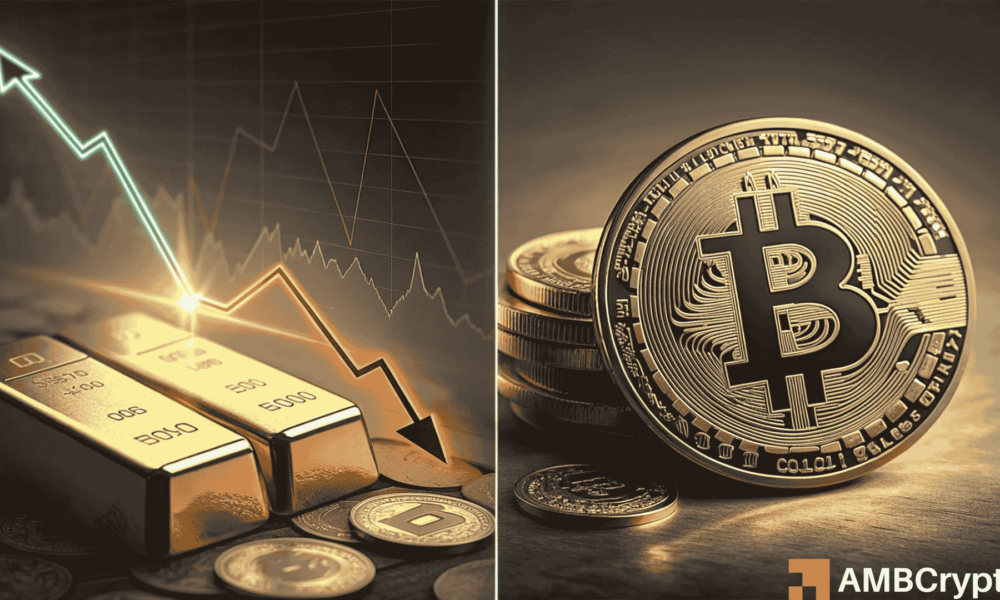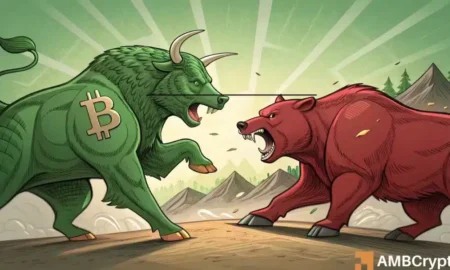Title: The Bitcoin vs. Gold Debate: Is Peter Schiff Right?
Understanding the Current Landscape
The ongoing debate between gold and Bitcoin as stores of value has gained new momentum, particularly after recent market movements. Notably, gold has surged to a new all-time high, while Bitcoin has faced significant corrections. Against this backdrop, economist Peter Schiff has renewed his criticism of Bitcoin, claiming that gold is outpacing Bitcoin considerably. Since August, gold has outperformed Bitcoin by approximately 25-27%, signaling a shift in investor sentiment. Despite this, Bitcoin remains up by about 17% year-to-date, suggesting there are more complex factors at play.
Why the Divergence?
The contrasting performances of gold and Bitcoin can be attributed to different drivers influencing each asset. Gold’s recent rally has primarily stemmed from safe-haven demand amid escalating geopolitical uncertainties and stock market volatility. Investors seeking stability have shifted their assets into gold, driving its price upwards. In contrast, Bitcoin’s correction is linked to over $9 billion in leveraged liquidations—prices fell significantly, not due to a fundamental weakness of the asset itself, but because of market psychology and liquidity issues.
Peter Schiff’s Perspective
On October 16, Peter Schiff took to X, claiming that “Gold is eating Bitcoin’s lunch.” By pointing out that Bitcoin is down 32% when priced in gold since August, he has captured the attention of both supporters and critics. His assertion that the current Bitcoin bear market will be “brutal” is making waves, but it also raises questions regarding market timing and sentiment. Schiff’s persistent skepticism towards Bitcoin has been well-documented, and his views resonate with those who remain cautious about cryptocurrencies in a volatile market.
Bitcoin’s Performance Analysis
A deeper analysis reveals that Bitcoin has experienced a roughly 14% decline in USD since early August, dropping from upward of $120,000 to around $108,000 following recent sell-offs. Meanwhile, gold has seen a stark increase from about $3,400/oz to around $4,291/oz during the same timeframe. While Schiff’s observations about Bitcoin’s trail behind gold hold some truth, the degree of decline may not be as severe as he suggests. This context is essential for investors to understand the current dynamics without falling into fear-driven narratives.
The Correlation Between Gold and Bitcoin
Historical data indicates that the correlation between Bitcoin and gold is often weak and fluctuating. Gold tends to rise during macroeconomic anxiety, while Bitcoin reacts more dramatically due to liquidity cycles and market sentiment. The recent gap between the two assets has been widened by geopolitical tensions and expectations of economic policy changes, particularly regarding the Federal Reserve’s balance sheet. While gold’s rally signifies a retreat to safety, Bitcoin’s decline reflects market corrections rather than a loss of confidence in the cryptocurrency itself.
A Balanced Outlook
To conclude, while Peter Schiff is correct in asserting that gold has outperformed Bitcoin since August, labeling this period as the start of a “brutal Bitcoin bear market” overlooks significant factors at play. Both assets have their unique advantages and challenges, and investor sentiment can swing dramatically based on external conditions. Bitcoin remains up year-to-date, and long-term holders appear largely unaffected by short-term volatility. The broader debate between Bitcoin and gold as stores of value continues, indicating that while gold may dominate current narratives, the long-term conversation about digital assets versus traditional commodities is just beginning.
In summary, while the momentum may favor gold for now, the resilience of Bitcoin and ongoing institutional interest still suggest a robust future for the cryptocurrency.
















